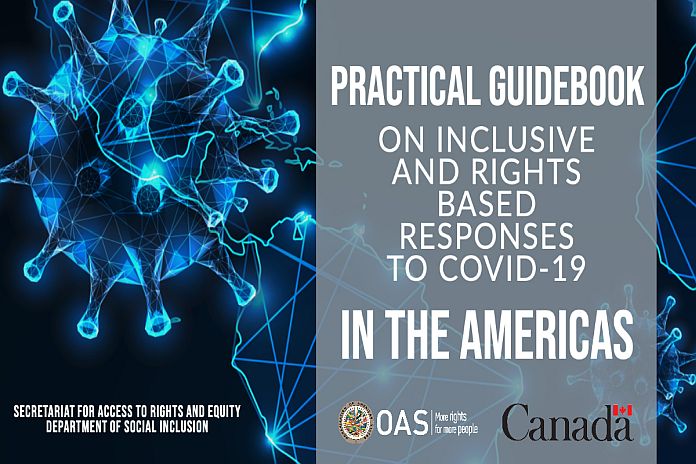WASHINGTON, USA – The general secretariat of the Organization of American States (OAS) published “The Inter-American Democratic Charter: A Guide to Political Action to Address the COVID-19 Pandemic.”
The Guide seeks to promote the functionality and validity of democratic principles as essential and effective elements to advance amid the challenges caused by the pandemic, especially in the new phase of economic recovery and progressive social restoration. The Guide is based on the concept that democratic mechanisms are the most appropriate way to address the pandemic and its consequences.
“The threats to our democratic systems today take the form of health crises, lack of services, massive loss of jobs, deterioration of productive capacity and damage to social cohesion,” write OAS secretary general Luis Almagro in the foreword to the Guide.
“In these difficult times, member states must be the main protagonists and actors in the democratic process. The Inter-American Democratic Charter recognizes them as the main actors in promoting and defending democracy as an essential system for social, political and economic development, which implies respect for others, the defense of the rules of the game, non-discrimination, the peaceful resolution of conflicts and the non-arbitrary exercise of authority,” writes Almagro.
The Guide, prepared by the department of sustainable democracy and special missions of the secretariat for strengthening democracy of the OAS general secretariat, is made available to member states on the understanding that strengthening democratic institutions is key to providing an effective and timely response to citizens during the pandemic.
“Local institutions play an important role in reaching the most remote and economically disadvantaged places,” the document indicates.
The Guide addresses the new stage that is beginning in relation to the pandemic, which is the path towards economic and social recovery and the restoration of productive activity. In this sense, the document highlights the importance of adopting measures for unemployed people and people working in the informal sector. The Guide establishes that, in the approach to the crisis generated by COVID-19, groups in situations of vulnerability should be protected, and transversal perspectives should be adopted with differentiated approaches to overcome barriers to access rights.
The document also highlights the importance of transparency in government activities, as well as the validity of the right to freedom of expression not only to allow a vibrant debate on ideas, but also to guarantee the control of citizens over public management, through the guarantee of the right to access public information.
“Democracy, the constitutional order and the rule of law are necessary conditions for achieving unrestricted respect for fundamental freedoms and the full observance of human rights during the emergency caused by the novel coronavirus,” the document concludes. “Democratic mechanisms provide effective and legitimate channels and provide the necessary tools to address the emergency caused by the pandemic. Their use responds to the democratic values and principles that inspire the behavior of the countries of the hemisphere.”





